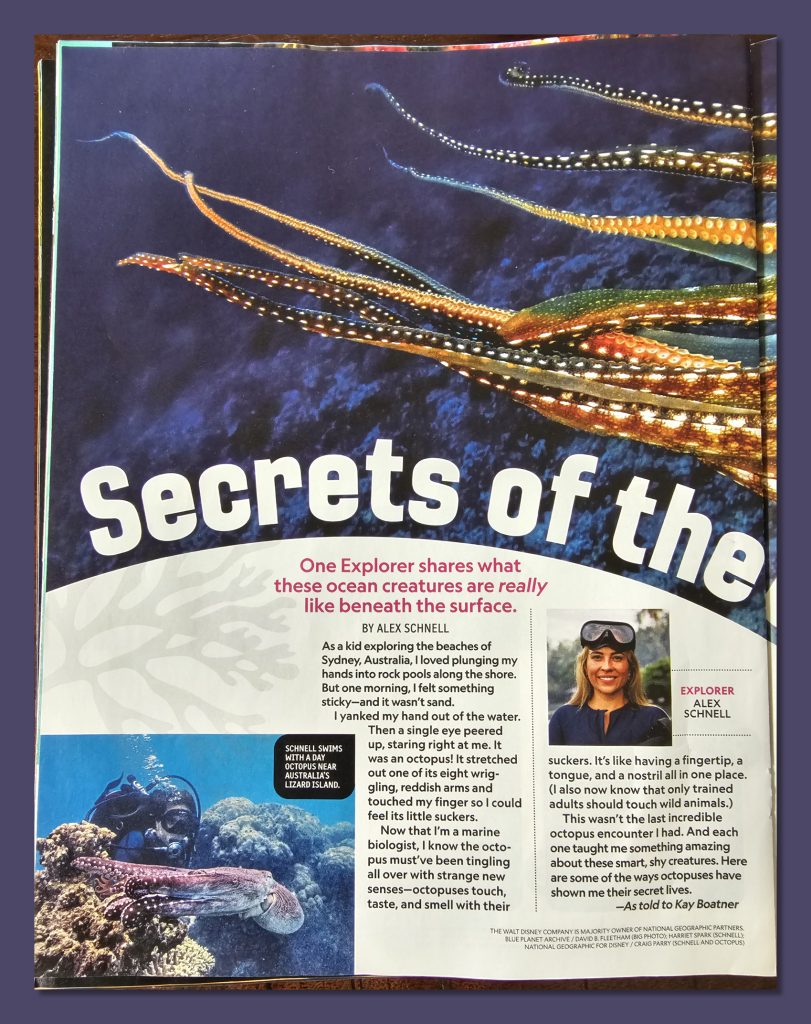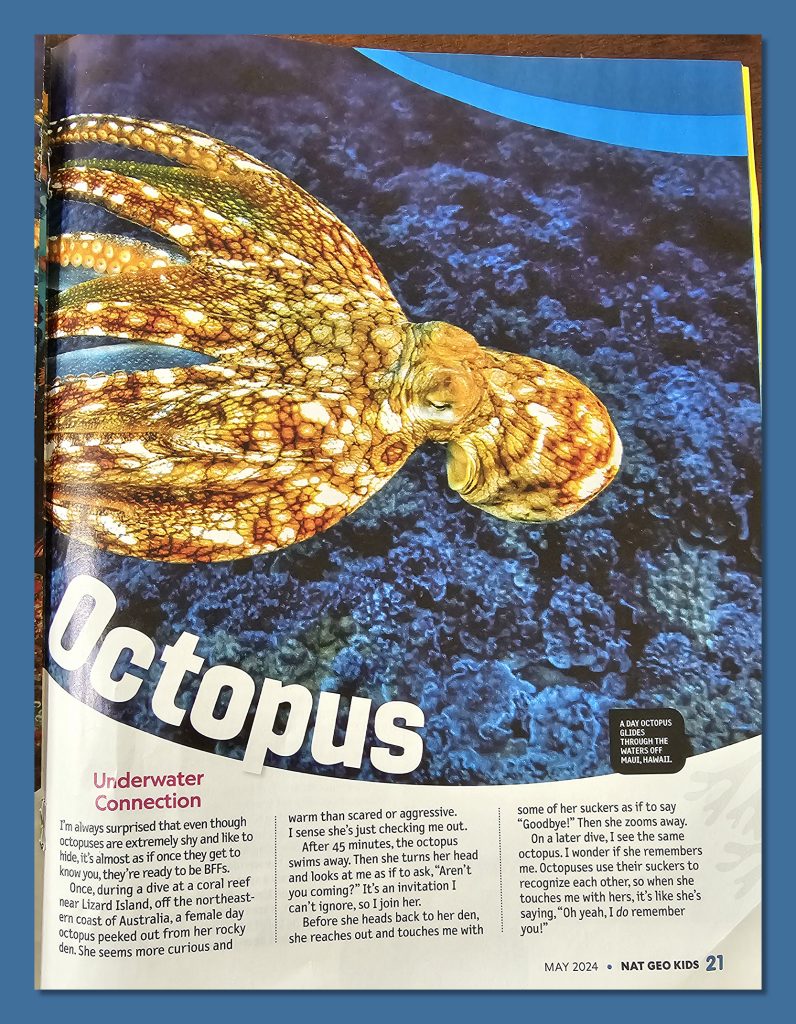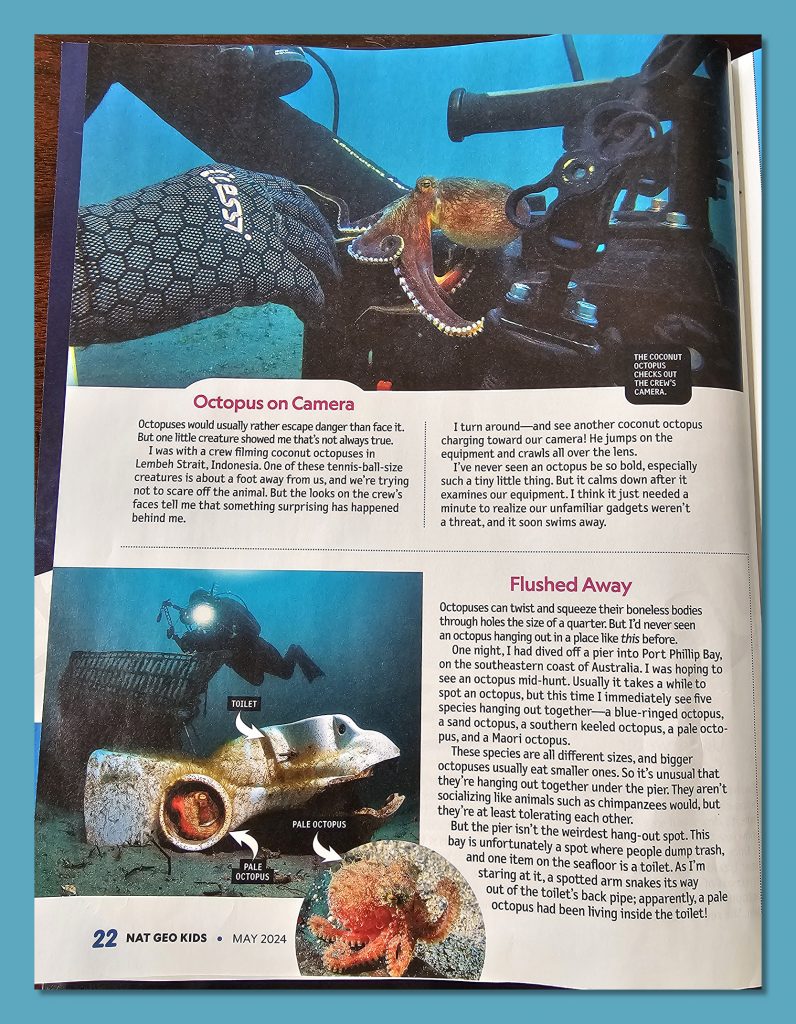Today, we’ll admire the secrets of a wonderous critter, the octopus. You might know about how they can change color to blend into their surroundings or how they touch, taste, and smell with their suckers, but as we dive into the ocean, we’ll explore the “other side” to them that isn’t as well-known. If you want to discover more about their behaviors, journey into the sea to take a glance at the mysterious, hidden parts of our eight-tentacled friends.
Firstly, octopuses might seem like your typical introvert. A shy, timid animal not wanting to confront others or socialize much. However, octopuses they get to familiarize themselves with you more, they get comfortable and want to be friends with you. Explorer Alex Schnell has experienced this with an octopus on the coast of Australia and found one of these 8-limbed-creatures. It seemed to be communicating with her as it gestured her to follow it and touching her with its suckers to signal good-bye. They’re also great at reunions and remembering when they first met you. Just like your human buddy, the day octopus took a gaze at Alex and recognized her immediately by touching her with her suckers.
Next, even though octopuses might seem timid and not very confrontational, some octopuses are braver than others. When Alex went to film coconut octopuses in Indonesia, one of them attacked the camera and hung onto the equipment with a tight grip. It was “defending” the coconut octopus nearby from the unknown materials. However, it realized the equipment wasn’t dangerous and relaxed more. This shows how protective and ready octopuses can be to preserve their species. When something dangerous appears, they will come to the rescue.
Lastly, octopuses are so flexible that they’d probably be able to fit into the smallest hole in the world. When Alex was in Australia’s oceans again, she noticed several types of octopuses hanging out together, and they were different sizes. It was shocking to her because usually, bigger octopuses eat smaller ones. They’ve been not only getting along with each other, but they also have been living in a toilet on the sea ground. The place gets dumped with lots of trash, and octopuses, with their intelligence, reuse it as a habitat or hangout.
Emerging from the ocean, this quest has told us more about octopuses and how they can be really similar to humans. We both recognize and signal each other when communicating, showing our love and affection in friendships. We also both stand up for our friends if we believe they’re in danger, just like octopuses do for others of their kind. Finally, we both reuse and can get along with others sometimes. Now that we’ve seen a different side to octopuses, your point of view has probably changed about them. They’re more similar to humans than we think they are. Next time, when thinking about an octopus, remember that they might not always be what they seem. Even if they appear to be shy or timid, their intellect and boldness can show when needed.
Written by Kruti Patel



